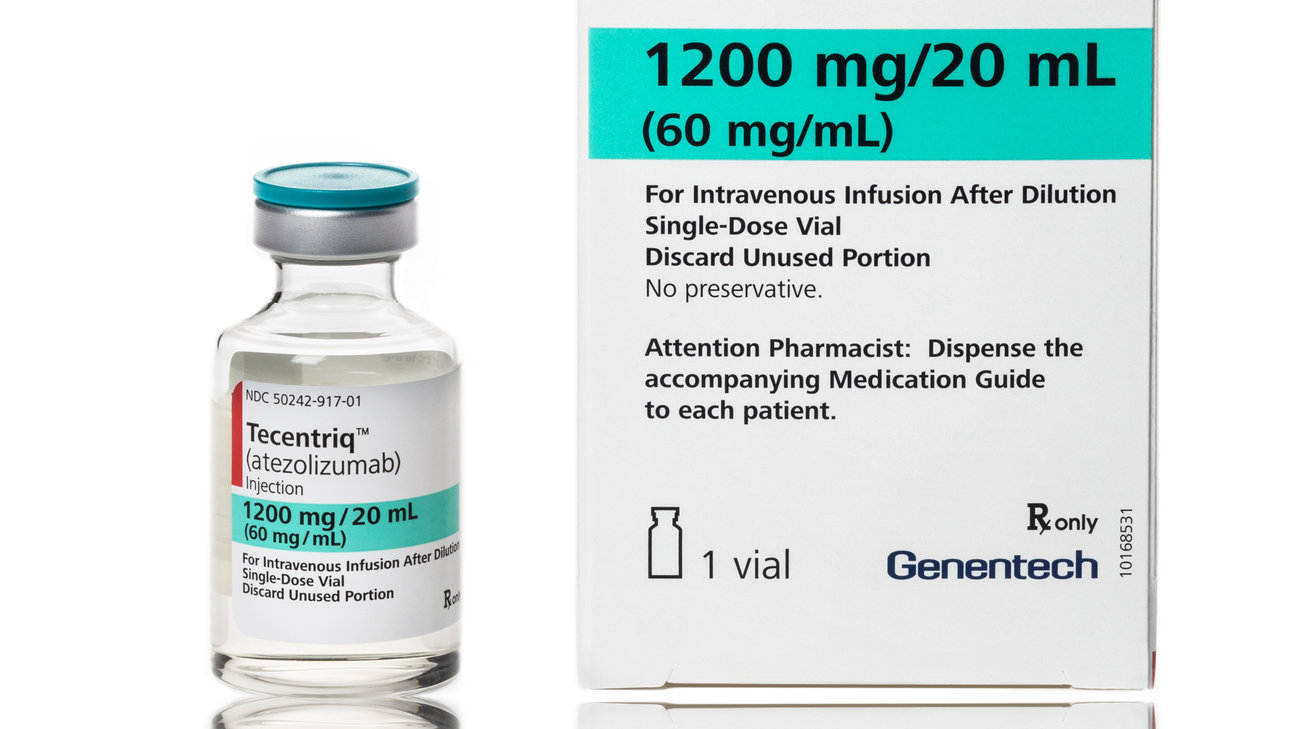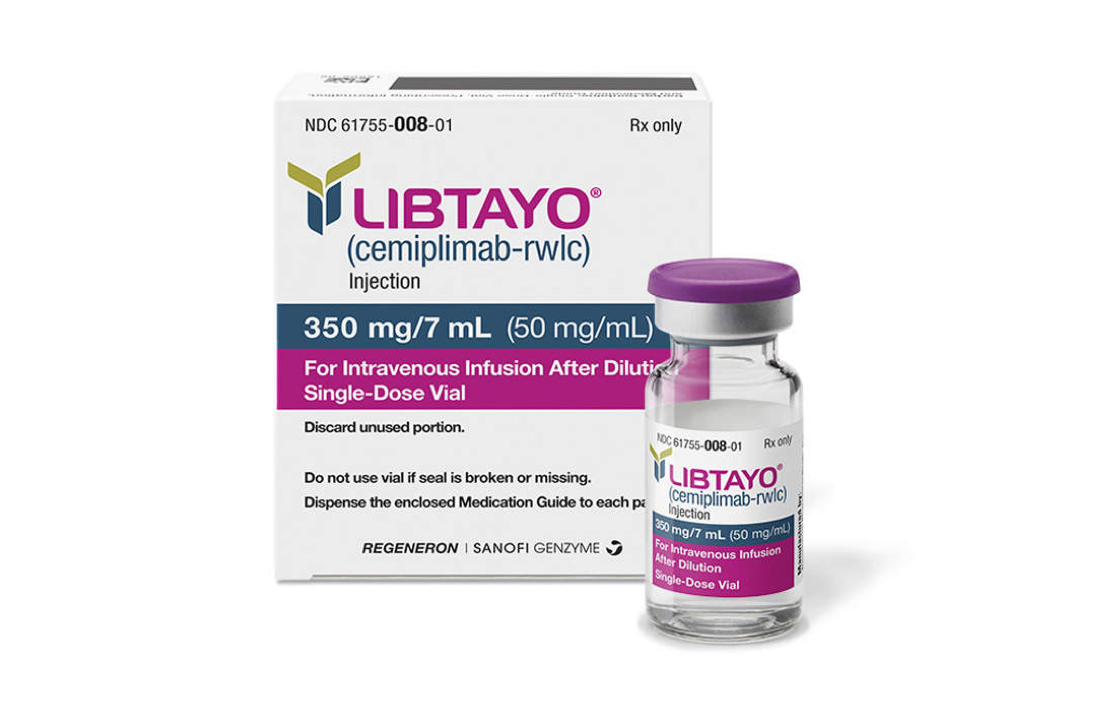Tecentriq (Atezolizumab) vs Libtayo (cemiplimab)
Tecentriq (Atezolizumab) vs Libtayo (cemiplimab)
Tecentriq (atezolizumab) and Libtayo (cemiplimab) are both immune checkpoint inhibitors, but they target different proteins: Tecentriq blocks PD-L1, while Libtayo blocks PD-1, both of which can lead to an enhanced immune response against cancer cells. Tecentriq is approved for various types of cancer, including non-small cell lung cancer (NSCLC), small cell lung cancer (SCLC), urothelial carcinoma, and triple-negative breast cancer, among others. Libtayo is primarily approved for the treatment of cutaneous squamous cell carcinoma (CSCC), basal cell carcinoma (BCC), and NSCLC, and the choice between the two may depend on the specific type and stage of cancer, as well as the patient's overall health and treatment history.
Difference between Tecentriq and Libtayo
| Metric | Tecentriq (Atezolizumab) | Libtayo (cemiplimab) |
|---|---|---|
| Generic name | Atezolizumab | Cemiplimab |
| Indications | Urothelial carcinoma, non-small cell lung cancer, small cell lung cancer, hepatocellular carcinoma, and melanoma | Cutaneous squamous cell carcinoma, basal cell carcinoma, and non-small cell lung cancer |
| Mechanism of action | PD-L1 inhibitor | PD-1 inhibitor |
| Brand names | Tecentriq | Libtayo |
| Administrative route | Intravenous infusion | Intravenous infusion |
| Side effects | Fatigue, nausea, cough, shortness of breath, decreased appetite | Fatigue, rash, diarrhea, musculoskeletal pain |
| Contraindications | None known | None known |
| Drug class | Monoclonal antibody, Immune checkpoint inhibitor | Monoclonal antibody, Immune checkpoint inhibitor |
| Manufacturer | Genentech (Roche) | Regeneron Pharmaceuticals, Sanofi |
Efficacy
Tecentriq (Atezolizumab) Efficacy in Lung Cancer
Tecentriq (Atezolizumab) is an immune checkpoint inhibitor that has shown efficacy in the treatment of certain types of lung cancer. Specifically, Tecentriq is approved for use in patients with previously treated metastatic non-small cell lung cancer (NSCLC) and as a first-line treatment for metastatic NSCLC that has high PD-L1 expression and no EGFR or ALK genomic tumor aberrations. Clinical trials have demonstrated that Tecentriq can improve overall survival compared to chemotherapy in these patient populations. The drug works by blocking the PD-L1 protein on tumor cells, thereby enabling the immune system to recognize and destroy cancer cells more effectively.
Libtayo (Cemiplimab) Efficacy in Lung Cancer
Libtayo (Cemiplimab) is another immune checkpoint inhibitor targeting the PD-1 pathway and is used in the treatment of lung cancer. It has been approved for the treatment of patients with metastatic NSCLC with a PD-L1 expression of 50% or greater, as determined by an FDA-approved test, who do not have EGFR, ALK, or ROS1 aberrations. In clinical trials, Libtayo has shown a significant improvement in overall survival and progression-free survival compared to chemotherapy in these patients. The efficacy of Libtayo in advanced lung cancer highlights the importance of PD-1 inhibition in the immune-mediated approach to cancer therapy.
Comparative Efficacy in Lung Cancer Treatment
While both Tecentriq and Libtayo have demonstrated efficacy in the treatment of lung cancer, direct comparisons of the two drugs in clinical trials are limited. Each drug has been studied in different patient populations and under varying conditions. However, the underlying mechanism of action, targeting the PD-1/PD-L1 pathway, is a common denominator in their ability to enhance the immune response against lung cancer cells. The choice between Tecentriq and Libtayo may depend on specific patient factors, including biomarker status, prior treatments, and overall health condition.
Considerations for Treatment Selection
When considering the use of Tecentriq or Libtayo for lung cancer, healthcare providers take into account the patient's specific type of lung cancer, PD-L1 expression level, and the presence of any genetic mutations. The efficacy of these drugs can also be influenced by previous cancer treatments the patient has received. It is important for patients to discuss the potential benefits and risks of treatment with their healthcare provider, including the possibility of side effects and how they may be managed. As with all cancer therapies, the goal is to select the treatment that offers the best possible outcome for the patient's unique situation.
Regulatory Agency Approvals
Tecentriq
-
European Medical Agency (EMA), European Union

-
Food and Drug Administration (FDA), USA

-
Health Canada

-
Pharmaceuticals and Medical Devices Agency (PMDA), Japan

-
Therapeutic Goods Administration (TGA), Australia

-
Medsafe (NZ)

Libtayo
-
European Medical Agency (EMA), European Union

-
Food and Drug Administration (FDA), USA

-
Health Canada

Access Tecentriq or Libtayo today
If Tecentriq or Libtayo are not approved or available in your country (e.g. due to supply issues), you can access them via Everyone.org.
How it works

Make an enquiry
Choose the medicine you want to buy, answer a couple of questions, and upload your prescription to speed things up. We’ll get back to you within 24 hours.


Make an enquiry
Choose the medicine you want to buy, answer a couple of questions, and upload your prescription to speed things up. We’ll get back to you within 24 hours.


Breeze through the paperwork
We'll guide you through the required documents for importing unapproved medicine, ensuring you have all the necessary information.


Get a personalized quote
We’ll prepare a quote for you, including medicine costs and any shipping, administrative, or import fees that may apply.


Receive your medicine
Accept the quote and we’ll handle the rest - sourcing and safely delivering your medicine.

Some text on this page has been automatically generated. Speak to your physician before you start a new treatment or medication.
Let's talk
If you have any questions, call us or send us a message through WhatsApp or email:
Contact us




